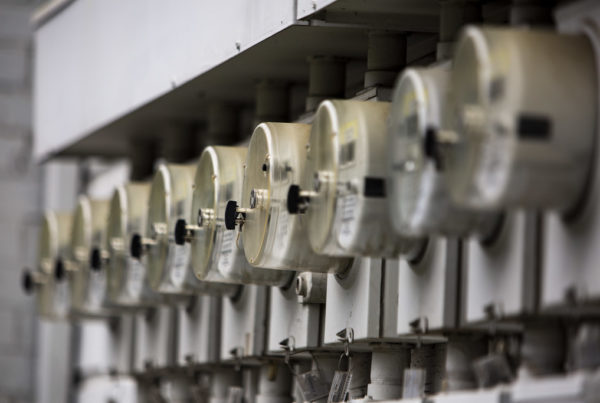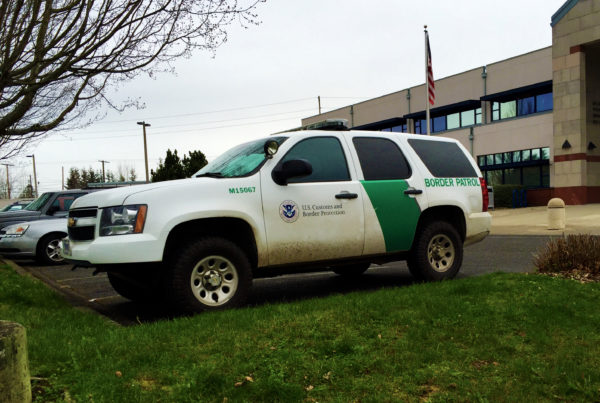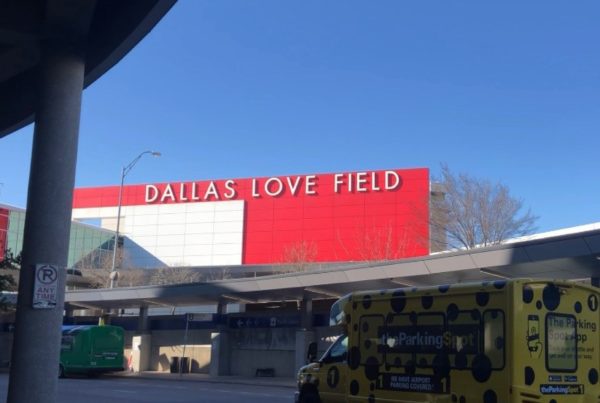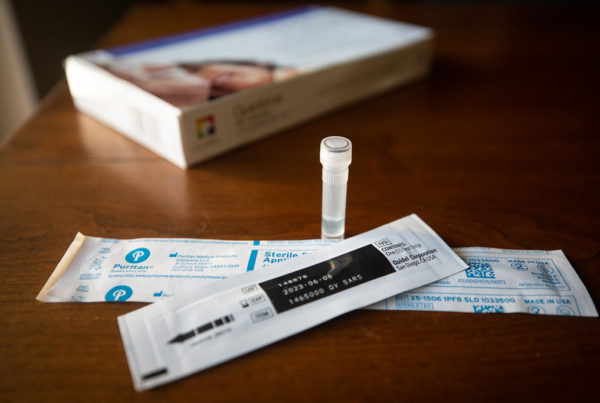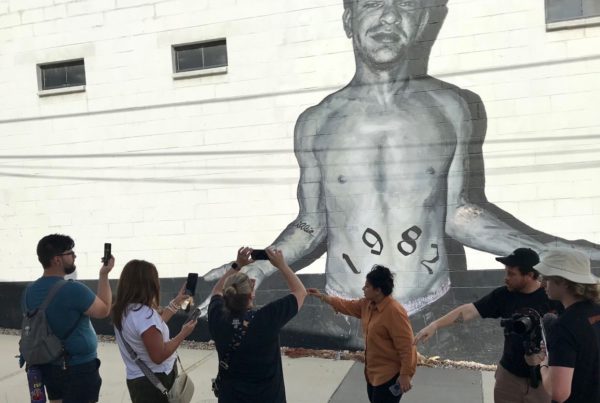Amid unrelenting heat, volunteers fill approximately 175 watering stations across Brooks County, Texas, some 70 miles north of the U.S.-Mexico border. The water is a lifeline for migrants who are trying to avoid the U.S. Border Patrol checkpoint in Falfurrias.
Sandra Sanchez, a journalist at Border Report, went on a ride-along with the South Texas Human Rights Center, the organization that refills the water stations. Listen to the interview above or read the transcript below.
This transcript has been edited lightly for clarity:
Texas Standard: Tell us about the conditions trekking through the brush in Brooks County. Where are the migrants actually headed, ultimately?
Sandra Sanchez: Brooks County is about 70 miles from the Mexico border. They’re all headed towards Houston. That is a popular drop-off spot smugglers take these migrants, and in order to get around the Border Patrol checkpoint in Falfurrias, which is a desolate kind of nowhere spot in Brooks County, they drop the migrants and tell them to walk about 20 miles through the brush.
Many don’t make it. There have already been 60 migrant deaths so far this year in Brooks County. Last year there were 119, and in the entire Rio Grande Valley sector, there have been 140. So you can see almost half of the deaths occur in this area, Brooks County. So putting out these watering stations is tantamount to helping these people to survive if they get left behind, injured or lost — because a coyote or a guide isn’t going to wait for them.
What’s striking – especially given the high numbers of people who disappear – is that the heat and the terrain is not stopping these migrants from trying to make this trek. Do they not get the message? Do they not hear from anyone that this is as treacherous as it is?
No, they don’t. They pay on average $8,000 a head to the cartels. Border Patrol does its best to try to get the word out to tell people in Guatemala, Honduras, El Salvador, Mexico, do not try to come north because when you get to this terrain, you’re just not going to survive it. But they’re so desperate for a number of reasons that they that they still do make the trek.
Tell us about this organization that is filling up these water stations, the South Texas Human Rights Center.
Eddie Canales is a longtime Chicano advocate. He started this in 2013. They have 175 watering stations, as you mentioned. These are giant blue buckets. And when you lift the lid, you’ll see GPS coordinates; you’ll see words written in Spanish for people to call for help, to tell loved ones where they’re located. I’m told most migrants do have a cell phone on their body to tell friends and family, ‘Hey, you know, I’m here and I’m hurt.’
So Eddie’s group of volunteers rely entirely on donations. And the day we were there, he put out over 150 gallons. We did a couple hundred miles. It was triple-digit heat. I was exhausted, and I was riding in a truck.
Is the Border Patrol doing anything to reduce migrant deaths?
They do. They have a migrant rescue program; it’s kind of like a migrant protection program. And they have put up some rescue beacons throughout the region — red buttons that migrants push. Border Patrol always comes with water bottles and IV equipment, and they offer emergency medical to every migrant that they get to. But that’s just it: In this kind of terrain, you’re not going to get to them all. Those who are just walking in this really thick, silty sand soil full of snakes and wild boar.
So that’s why Eddie puts these out. These water stations have been attacked by a lot of people. They put cameras on them. They’ve dismantled them. He says that, you know, he’s gotten a lot of threatening phone calls, emails. Not everyone wants these and not every rancher will allow them on their property because they say it could encourage illegal migration through the region.





